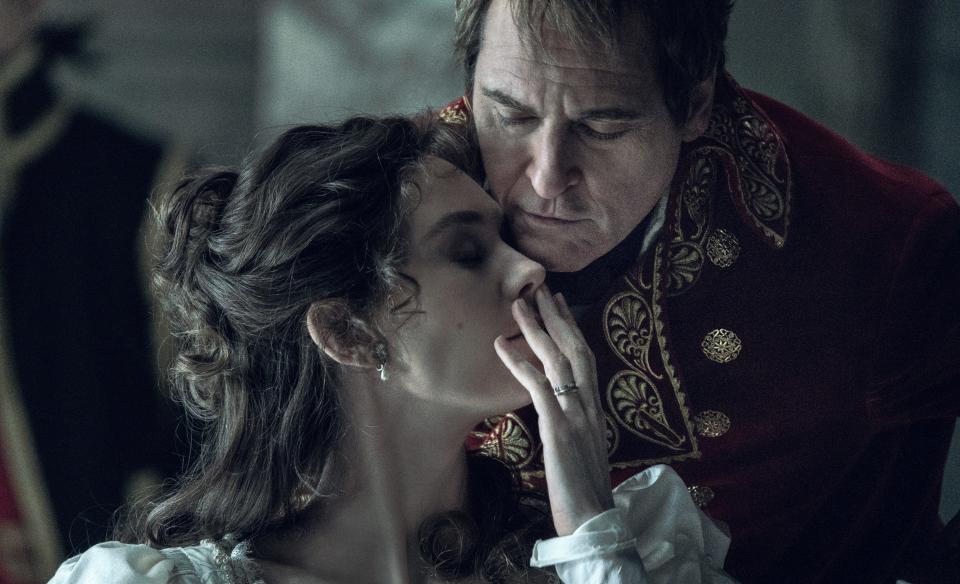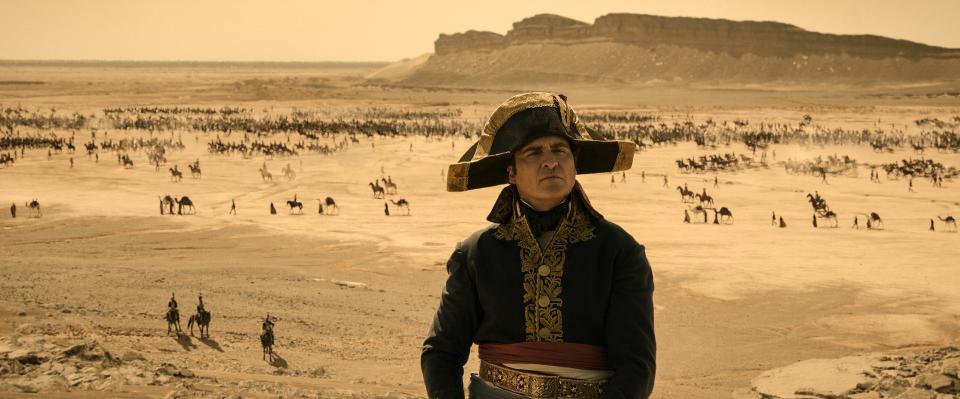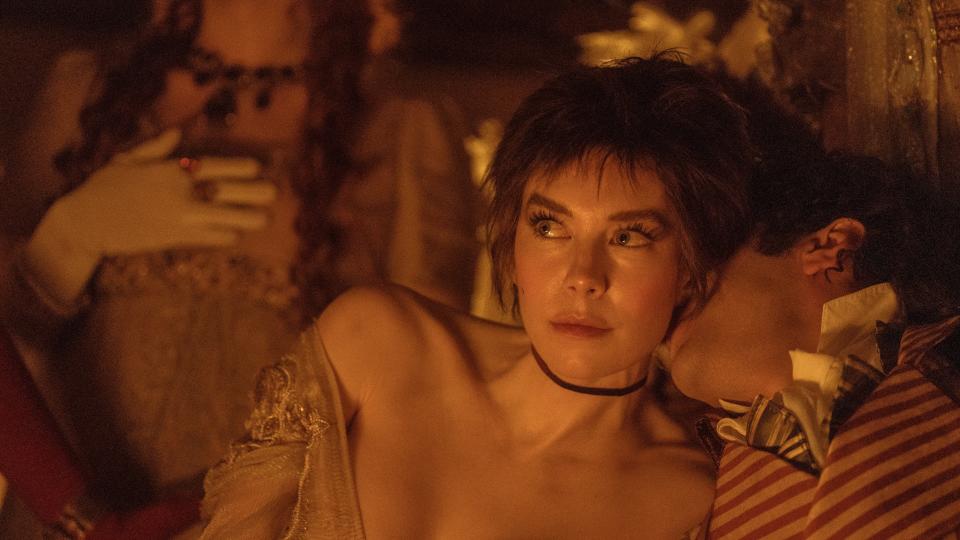'She definitely turned him on': How Napoleon's love letters to Josephine inform a new film
Call it the 18th-century equivalent of being ghosted.
On his military campaigns, French general (and later emperor) Napoleon Bonaparte would send his wife Josephine mostly unrequited love letters. The one-way correspondence became increasingly tumultuous and passionate, and even included some rather steamy passages (aka Napoleonic sexting).
Those letters were key to crafting the historical power couple seen in director Ridley Scott’s epic “Napoleon” (in theaters now), starring Joaquin Phoenix as the title character and Vanessa Kirby as his spouse. For Kirby, the letters were revelatory insights into their marriage.

“It's kind of extraordinary to think this military commander who was out on the battle lines was rushing back to his tent to write these so acutely romantic and sentimental letters to this woman who wasn't really replying to him at the time,” Kirby says. “That definitely gave us the impression that he was much more obsessed with her than she was with him at the beginning. The power dynamic, it swung back and forth, and continued throughout their relationship."
Scott depicts Napoleon in battle, his tactical genius at work, and also his political ambitions. But the filmmaker was most intrigued by the vulnerability of a man that powerful. “Why would he get jealous in Egypt, leave the army and get a fast frigate back to Paris because he heard his wife is having an affair? That is fascinating,” Scott says.
“The letters, frankly, are nearly childlike in their simplicity and sometimes they're kind of poetic in some ways, but also border on pornography in others. And so his letter writing was very revealing as to his vulnerability, what he felt about her and, to be modern about it, how she definitely turned him on.”
'Napoleon' movie review: Joaquin Phoenix leads the charge in Ridley Scott's erratic epic

The letters aren’t just creative inspiration – Scott makes them an important part of the movie. During Napoleon’s onscreen conquests, Phoenix narrates sections taken “absolutely verbatim” from the historical figure's writings, Scott says. And after Josephine dies of pneumonia following their divorce, the filmmaker “felt that she was missing,” so the film utilizes her real letters and replies in the latter part of the narrative.
Because theirs was “a very deeply unusual, unconventional relationship,” Kirby says she and Phoenix played a lot of different emotions in scenes because “we could never grasp the consistent nature” of these two people who were outsiders in society and culture: When they met in Paris in 1795, Napoleon was a 26-year-old soldier from the island of Corsica and Josephine was a 32-year-old widowed courtesan and single mother from Martinique.
“They were upstarts who came together and recognized each other as being different," Kirby says. But there was also a clear "I can't live without you and you without me" co-dependency between Napoleon and Josephine. “That's obviously incredibly toxic and dysfunctional, but also there's the security (and) that sense of home they felt in each other, despite the craziest of external circumstances.
15 must-see holiday movies: From 'The Marvels' and 'Napoleon' to 'Trolls 3' and 'Wish'

“So many of the history books talked about how as his empire crumbled, it correlated with him having to divorce Josephine,” she adds. “We also talked a lot about the pain for them both of her not being able to have a child. I can't imagine the difficulty she would've experienced in wanting her body to perform for this empire and for him, and not being able to."
Their relationship has “fascinated people for centuries,” Kirby says, and doing her own research, she thinks they did share a "profound" love. “They were fused together and never really ever wanted to separate. The fact that his last word before he died was ‘Josephine’ to me symbolized that they were always tangibly linked but it was never sort of a straight graph of increasing, mature and subtle love.”
Scott, on the other hand, remains unsure. “Did she love him? I don't think so,” he says. “Did she respect him? Certainly.”
This article originally appeared on USA TODAY: Behind the 'Napoleon' movie, the true story of a toxic romance

